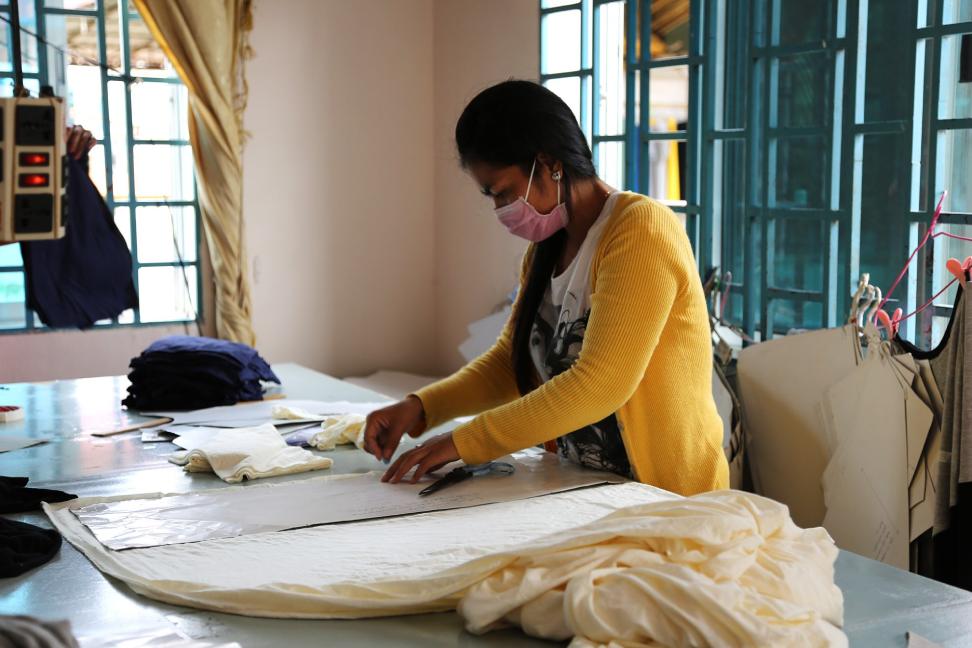King 567, Betbhai247, Apbook247: Ethical fashion is gaining momentum as consumers increasingly prioritize sustainability. By opting for eco-friendly materials and production methods, ethical fashion brands are playing a crucial role in reducing the industry’s environmental footprint. From using organic cotton to upcycling materials, these practices help minimize waste and decrease the use of harmful chemicals in the production process.
Moreover, ethical fashion encourages transparency and accountability throughout the supply chain. By ensuring fair wages and safe working conditions for garment workers, these brands are contributing to a more ethical and socially responsible industry. As consumers become more informed about the impact of their clothing purchases, the shift towards ethical fashion is not only benefiting the environment but also fostering a culture of ethical consumption.
Why Supporting Fair Labor Practices is Important in the Fashion Industry
Supporting fair labor practices in the fashion industry is crucial for ensuring the well-being and rights of the workers involved in the production process. By advocating for fair wages, safe working conditions, and reasonable working hours, fashion brands can contribute to a more ethical and sustainable industry. When workers are treated fairly and with respect, they are more motivated, productive, and less likely to experience burnout or exploitation.
Moreover, supporting fair labor practices in the fashion industry is essential for upholding human dignity and combating modern slavery and exploitation. By adhering to ethical labor standards, fashion companies can help protect vulnerable workers from discrimination, forced labor, and unfair treatment. Ultimately, prioritizing fair labor practices is not only a moral imperative but also a strategic decision that can enhance the reputation and credibility of fashion brands in the eyes of consumers and stakeholders.
How Ethical Fashion Promotes Social Responsibility
Apbook365, Apbook Login, Goexch777: Social responsibility is a key facet of ethical fashion, as it places emphasis on the well-being of the workers throughout the supply chain. By ensuring fair wages and safe working conditions, ethical fashion brands contribute to the overall improvement of social standards within the industry. This commitment to ethical practices cultivates a culture of respect and dignity for all individuals involved in the production process.
Moreover, ethical fashion encourages transparency and accountability within the fashion industry. By promoting greater visibility into sourcing methods and production processes, consumers are empowered to make informed choices that align with their values. This transparency not only holds brands accountable for their actions but also fosters a sense of trust and credibility, creating a more sustainable and responsible fashion landscape.
- � Social responsibility is a key facet of ethical fashion
- � Ensures fair wages and safe working conditions for workers
- � Cultivates a culture of respect and dignity for all individuals involved
- � Ethical fashion promotes transparency and accountability
- � Empowers consumers to make informed choices
- � Fosters trust, credibility, and sustainability in the fashion industry
What is ethical fashion?
Ethical fashion refers to clothing and accessories that are produced in a way that is socially and environmentally responsible.
How does ethical fashion impact the environment?
Ethical fashion reduces all the negative effects on the environment by using sustainable materials, minimizing waste, and promoting eco-friendly production methods.
Why is supporting fair labor practices important in the fashion industry?
Supporting fair labor practices ensures that garment workers are paid fair wages, have safe working conditions, and are treated ethically in the production process.
How does ethical fashion promote social responsibility?
Ethical fashion promotes social responsibility by advocating for the fair treatment of workers, supporting local communities, and raising awareness about sustainable and ethical practices in the fashion industry.
What can consumers do to support ethical fashion?
Consumers can support ethical fashion by choosing brands that prioritize sustainability and fair labor practices, educating themselves about ethical fashion issues, and advocating for positive change in the industry.
Additional:
- Top 3 Tips For First-Time Car Buyers
- Top 5+ Best Ways To Invest In Yourself
- What Is Sportsurge And How To Use It?

